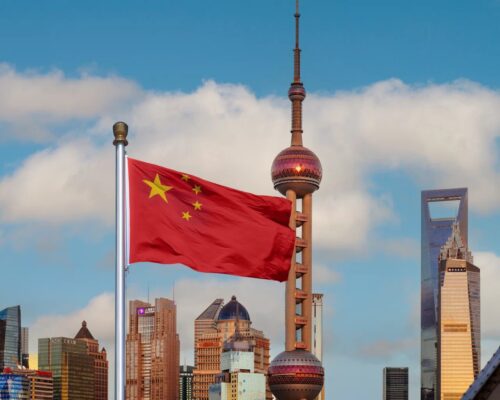
Pashinyan’s arguments of opening the Armenian-Turkish border
During a visit to Greece, Nikol Pashinyan gave an interview to the daily newspaper Kathimerini, talking about the need to open the Armenian-Turkish border and the economic benefits it offers. According to Pashinyan, thanks to this, transport links will be unblocked, and Armenia will gain access to the Mediterranean Sea through Turkey, and from there to Greece and Europe. This plan is to contribute to stability and security from the Caucasus to the Mediterranean Sea, or as Pashinyan says, to the “Crossroads of Peace”.
The ideas he expressed during the interview were not new and were put forward by these authorities a long time ago. On Jan. 24, 2022, in an interview to the press, Nikol Pashinyan spoke about the possibilities of opening the Armenian-Turkish border and the economic potential this move might have.
Considering the statements about the supposed benefits mentioned by Nikol Pashinyan and, in general, by these authorities, it is important to give a clear answer to three questions: Is it really that beneficial to open the Armenian-Turkish border? Have the authorities assessed the potential risks that this border opening may entail? Are these authorities advancing merely state interests when they put the border opening issue on the agenda?
The man, occupying the Armenian prime minister’s seat, said in one of his interviews that due to the opening of borders with Turkey, the export of Armenian products will grow, and these goods will reach Europe at a lower cost price. In response to whether or not the cheap Turkish products will flood the entire Armenian market, doing harm to the domestic market, Pashinyan said that countries like Armenia should carry out an export-oriented policy, instead of thinking about preserving the already small market for the domestic producer. But there’s the rub, before the adoption of an export-oriented policy, successful and developed countries first boost domestic production, so that later there will be something to export. This is evidenced by the experience of China, South Korea, and a number of Asian and non-Asian developed countries. Armenia is not involved in the heavy automotive industry and this is a well-known fact. While, light industrial and agricultural products fail to cope with domestic demand. Thus, it turns out that the current authorities of Armenia talk about the increase in export volumes due to the border opening and its possible benefits, but the products to be exported either do not exist or are strictly limited. Before the production and promotion of goods, a state must consider which markets will be interested in its local produce and where it can be competitive. In this case, Pashinyan explains the need to open the Armenian-Turkish border by the opportunity of getting into the European market. Here let us draw parallels with the former authorities of Moldova, which, focusing on the European market, calculated that only by exporting wine, they would make large profits. However, when Moldovan wine got into the European market, it turned out that it was not in demand there. The reason for this serious lapse was that the Moldovan authorities, obsessed with European dreams, overlooked the very fact that such giants exporting wine and other alcoholic beverages as France, Italy and Spain had already cornered the European market. Therefore, besides encouraging exports, pragmatic and successful governments encourage the creation of appropriate think tanks. In the case of Moldova, a simple SWOT analysis, which takes into account not only opportunities and benefits, but also risks and damages, would have made it possible to avoid the mistake of putting all the eggs in one basket. And what path are the current authorities of Armenia following? Nikol Pashinyan declares that as a result of the border opening, some goods may become less competitive, but instead new ones may come on market. In other words, as was the case with Moldova, everything is being done only at the level of assumptions. And here is the answer to the second question: The government and its head do not have clear analytical guidelines about the benefits, potential risks, and damages, and are not interested in it either.
When we talk about the opening of the Armenian-Turkish border, besides the economic issues, security issues also come to the fore, which the authorities do not talk about at all. For example, none of them talks about the sad Syrian experience of establishing diplomatic relations with Ankara and opening the borders. No one says that when Syria de-mined and opened its border with Turkey, Ankara later used it to move loyalist militant groups there, to destabilize the country and to smuggle goods. Is Armenia ready to rise to such challenges, because the international practice shows that Turkey is not that reliable as a partner.
Judging by the ways of these authorities, the idea of opening borders is being pushed forward without considering state and national interest. Pashinyan and his league have simply received signals from various NATO and EU officials that we should open vertical communication links with Turkey if we want to get Western support.
Some theorists welcomed Pashinyan’s so-called western orientation. They claimed that the West is in sharp conflict with the Russian-Turkish tandem. While, now, it turns out that the West sees Armenia’s European future in Turkey. However, Armenia cannot have a future with a country which conducts an overtly anti-Armenian and hostile policy.
It is not in our interest to be caught in a dilemma between not that good an ally and a real enemy, and in the end, choose the enemy because of the self-interest and whims of these authorities. Armenia has the opportunity to carry out a policy based on true national and state interests, but only if the Armenian nation rejects the hollow arguments put forward by these authorities and forms a new pro-state government.
Ashot Barekyan



